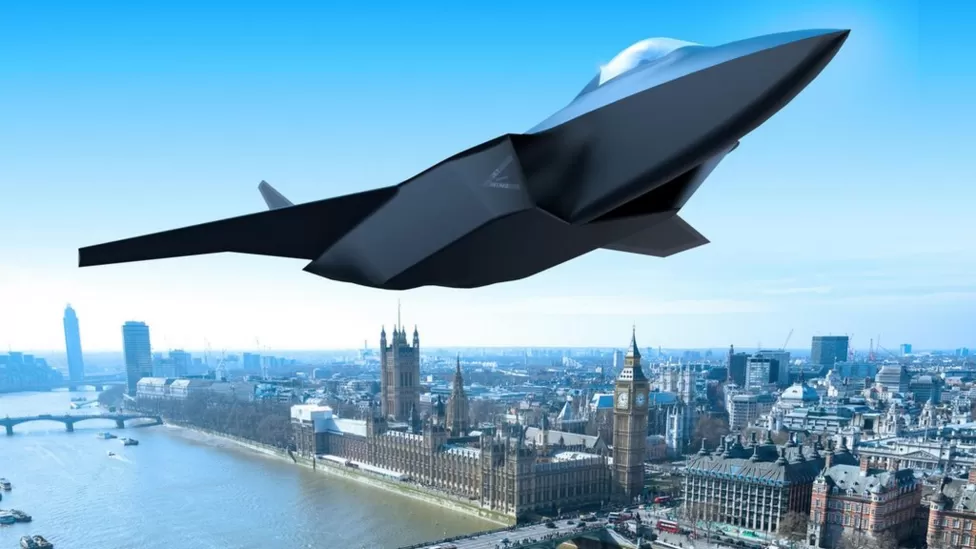Rishi Sunak is set to announce a collaboration between the UK, Italy and Japan to develop a new fighter jet that uses artificial intelligence. The prime minister says the joint venture aims to create thousands of UK jobs and strengthen security ties. The nations will develop a next-generation fighter – due to enter service in the mid-2030s – that will eventually replace the Typhoon jet. It is hoped the new Tempest jet will carry the latest weapons. Work on developing it is already underway – with the aim to create a combat aircraft that will provide speed stealth, use and advanced sensors and even artificial intelligence to assist the human pilot when they are overwhelmed, or under extreme stress. It could also be flown without a pilot’s input if required and could be able to fire hypersonic missiles. But building such a complex aircraft is extremely expensive – developing the F35 jet was the most expensive programme ever undertaken by the Pentagon – so Britain has been looking for partners.

Italy was already on board, and the addition of Japan is a significant move – at a time when Britain is building closer ties with allies in the Indo-Pacific region worried about a more assertive China. Other countries could still join the programme. France, Germany and Spain are already working together on their own separate design – as is the United States.
For the UK, this agreement is not just about security but also economics. The hope is that developing a new fighter jet could create and sustain thousands of UK jobs and open doors to more arms exports. Mr Sunak will launch the first major phase of the programme during a visit to RAF Coningsby, in Lincolnshire, on Friday. Ahead of the visit, he said: “The security of the United Kingdom, both today and for future generations, will always be of paramount importance to this government. “That’s why we need to stay at the cutting-edge of advancements in defence technology – outpacing and out-manoeuvring those who seek to do us harm.
“The international partnership we have announced today with Italy and Japan aims to do just that, underlining that the security of the Euro-Atlantic and Indo-Pacific regions are indivisible. “The next-generation of combat aircraft we design will protect us and our allies around the world by harnessing the strength of our world-beating defence industry – creating jobs while saving lives.” John Healey, Labour’s shadow defence secretary, said his party backed the partnership but warned about training. “Ministers must make clear how this fits with wider plans for the RAF’s future, including how they will prevent delays in fast-jet pilot training,” he said.
![]()





